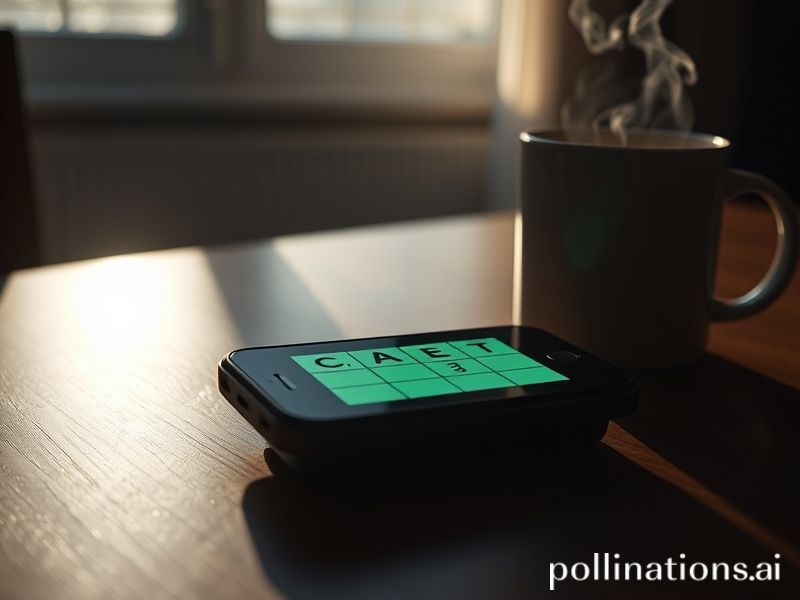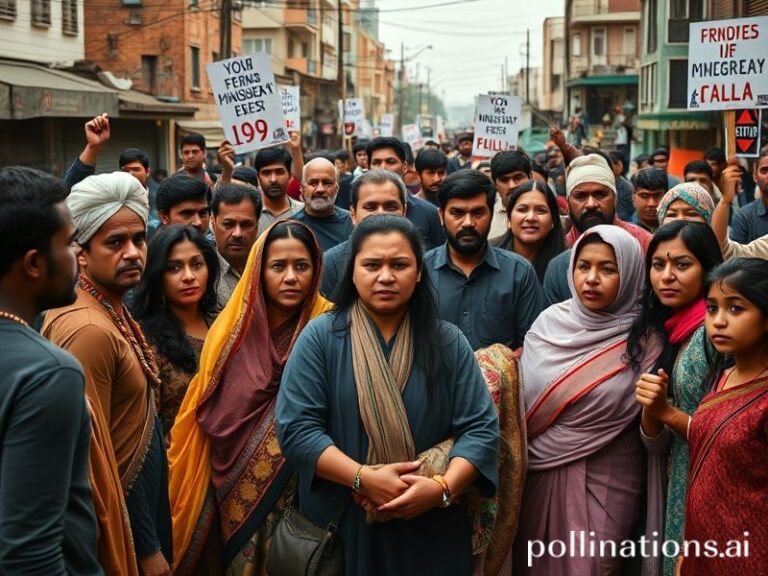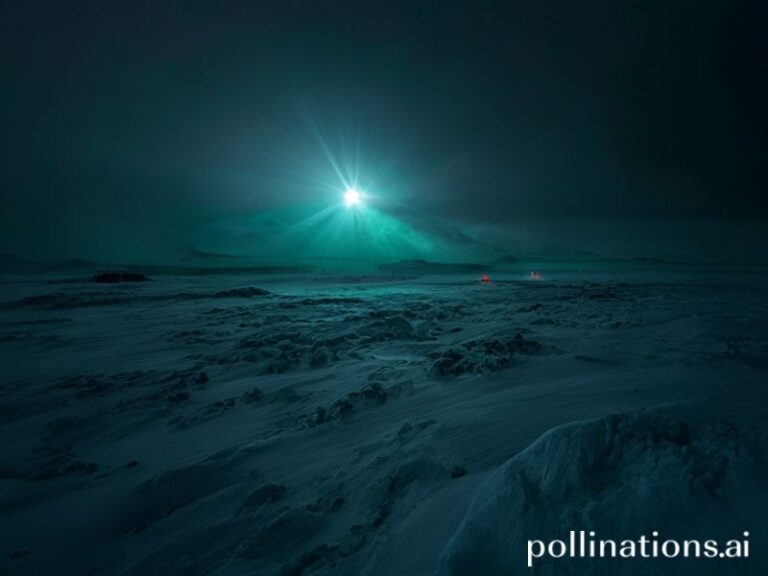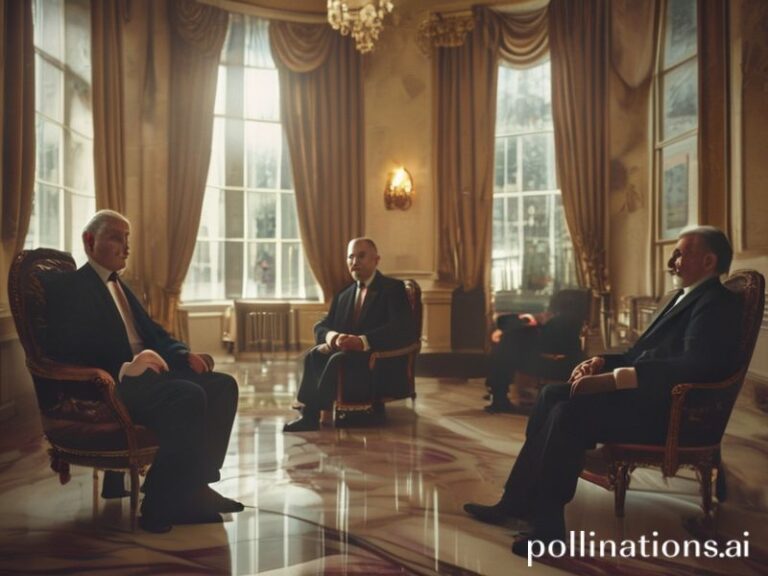World Holds Breath for Five-Letter Verdict: Wordle’s Quiet Conquest of the Globe
Geneva—While the Security Council bickered over whose turn it was to veto humanitarian aid, and the bond markets practiced synchronized nose-dives, five unassuming green, yellow, and gray squares quietly colonized every screen from Lagos to Ljubljana. Somewhere between the third espresso and the fourth existential crisis, humanity discovered that the most pressing geopolitical variable of 26 June 2024 is, apparently, the Wordle answer. Spoiler etiquette forbids me from revealing it here—though if you’re reading this after midnight UTC, congratulations, the planet has already rotated on and the word has expired like a Ukrainian ceasefire.
Still, the mere existence of a “daily global word” is a phenomenon worth dissecting, preferably with the same gusto pathologists reserve for questionable cafeteria meat. The New York Times’ puzzle now translates itself, like an eager Mormon missionary, into every major language and a few minor ones. Yesterday, a street vendor in Kolkata and a bond trader in Frankfurt both started their day with the identical five-letter insect of anxiety buzzing in their skulls. This is what passes for planetary synchronization now that we’ve given up on the Olympics, climate accords, and basic table manners.
Consider the supply chain: the word is minted in a nondescript server farm outside Albany, then blasted across subsea cables that NATO and Russian trawlers alike regard as fair game for target practice. A single typo in the deployment script and 3.2 million users from Seoul to São Paulo would wake up to a blank grid and, presumably, an unscheduled midlife crisis. One shudders to imagine the diplomatic cables: “Brazil protests cultural imperialism inherent in Anglo lexical hegemony; demands tomorrow’s answer be ‘CAÇAO.’”
Meanwhile, autocrats have noticed. The Kremlin’s newly formed Ministry of Correct Semantics has reportedly begun inserting state-approved vocabulary into the Russian-language clone, ensuring that every citizen wakes up contemplating either “UNITY” or “CZARS.” In Beijing, the Great Firewall briefly blocked today’s word for “subversive metaphor,” causing the entire Shanghai stock exchange to stall while traders Googled synonyms for “existential dread.” Apple stock dipped 0.7 percent; somebody, somewhere, made a billion dollars on the volatility, proving once again that late-stage capitalism can monetize even your idle procrastination.
The humanitarian dimension is equally bleak. Refugee camps in northern Jordan have begun circulating printed grids, smuggled in alongside insulin and baby formula. Aid workers report that displaced Syrians compete fiercely for yesterday’s leftover newspapers—not for the news, which is universally grim, but for the puzzle page. One wonders if the UNHCR will soon issue a white paper on “Lexical Trauma in Forced Migration Contexts,” complete with a budget line for therapeutic vowel distribution.
Back in the pampered West, corporate HR departments have weaponized the game. Slack channels now auto-post the daily solution at 9:01 a.m. local time, theoretically to “boost team cohesion” but mostly to identify the statistically inevitable employee who still hasn’t figured out that “ADIEU” is the optimal opener. These poor souls are quietly reassigned to the blockchain division, where coherence is actively discouraged.
And yet, for all the mockery, there is something morbidly comforting in the ritual. In a fractured world where currencies collapse faster than middle-aged knees, at least we share one microscopic certainty: somewhere, a word exists, and it is five letters long. Whether you solve it in two guesses or six, the grid still resolves into tidy black-and-white judgment, a rare binary verdict in an era allergic to absolutes. Tomorrow the answer will change, the headlines will worsen, and the oceans will continue their passive-aggressive encroachment on Venice, but for now—right now—millions of humans are united by the same silent question: “Does it have a double letter?”
If that isn’t a metaphor for our collective future, I don’t know what is. Probably “LOSS.” But check back in twenty-four hours; the apocalypse is updated daily.







